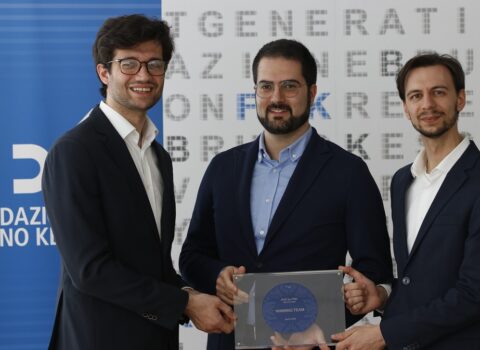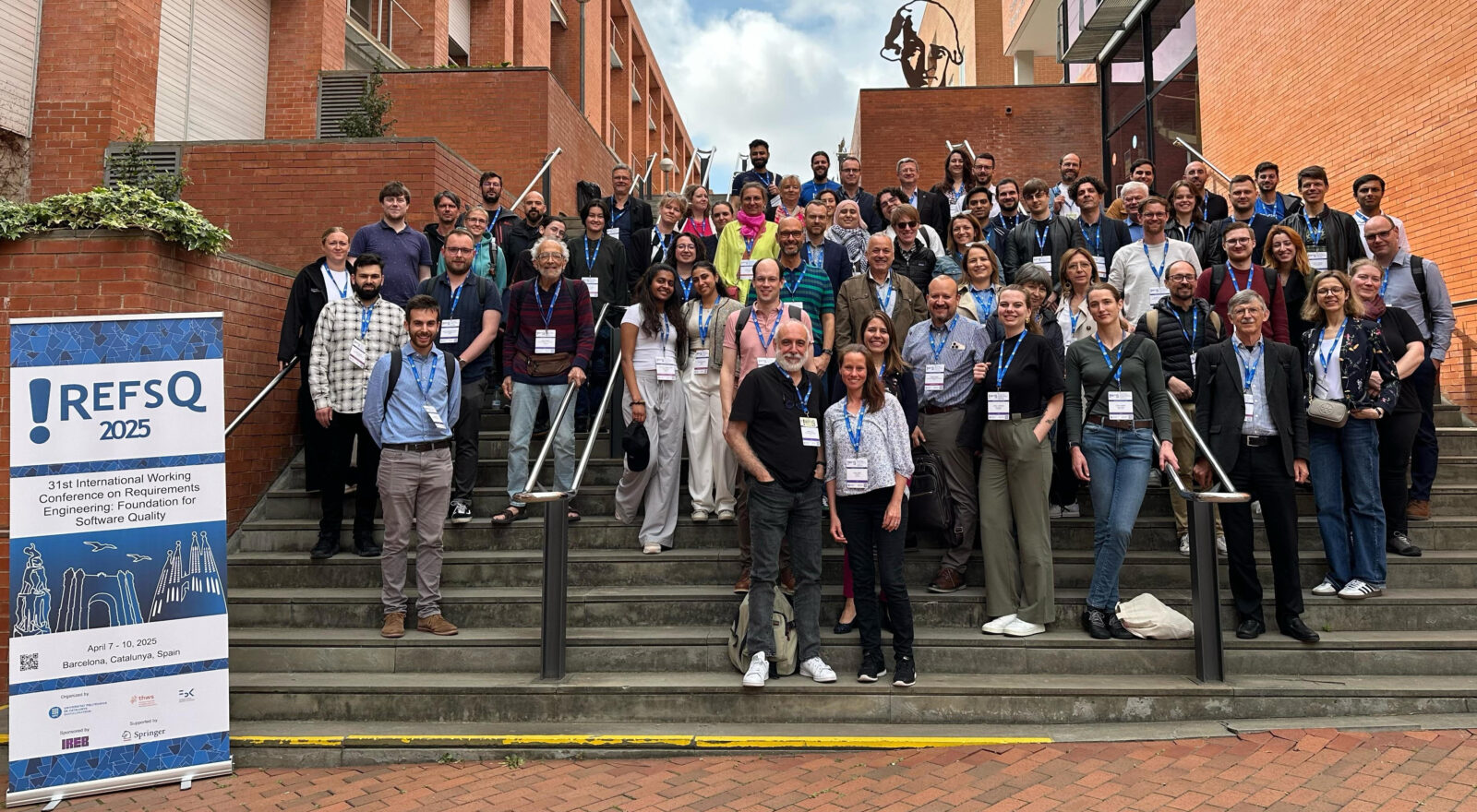
Requirements Engineering and Social REsponsibility: FBK featured at REFSQ 2025
Angelo Susi co-chairs the international conference in Barcelona to promote more informed and inclusive digital design
“Social REsponsibility” was the theme of the 2025 edition of REFSQ 2025 Requirements Engineering: Foundation for Software Quality, the reference conference for requirements engineering now in its 31st edition. Held last week in Barcelona at the Universitat Politècnica de Catalunya (UPC), the event brought together more than 120 researchers, practitioners and industry representatives from around the world to explore the latest challenges and opportunities in a field that is increasingly crucial to the development of effective and sustainable digital solutions. Angelo Susi, head of the Software Engineering unit of Fondazione Bruno Kessler, served as Program Co-Chair with Anne Hess of the Technical University of Applied Sciences Würzburg-Schweinfurt, while the event was organized by Xavier Franch, Carles Farré and Quim Motger of UPC.
Requirements engineering, a field focused on identifying and formalizing users’ needs and goals, is increasingly being called upon to address the social, cultural, and ethical impacts of the technologies it contributes to developing. The conference thus served as a valuable opportunity to reflect on a pressing question: how can effective requirements engineering help us create a more responsible, equitable, and inclusive future?
“Requirements engineering researchers, as intermediaries between society and technology, bear a significant ethical responsibility to guide the development of digital systems in ways that promote sustainability, equity, and inclusivity,” emphasized Angelo Susi during the event’s sidelines.
The focus of this edition of REFSQ was on the importance of integrating social values and ethical impacts early in software design. Central to the discussion was the belief that good software cannot be separated from a collective reflection on the common good: designing responsibly means actively involving stakeholders, promoting inclusiveness and ensuring transparency and sustainability in the life cycle of digital systems.




